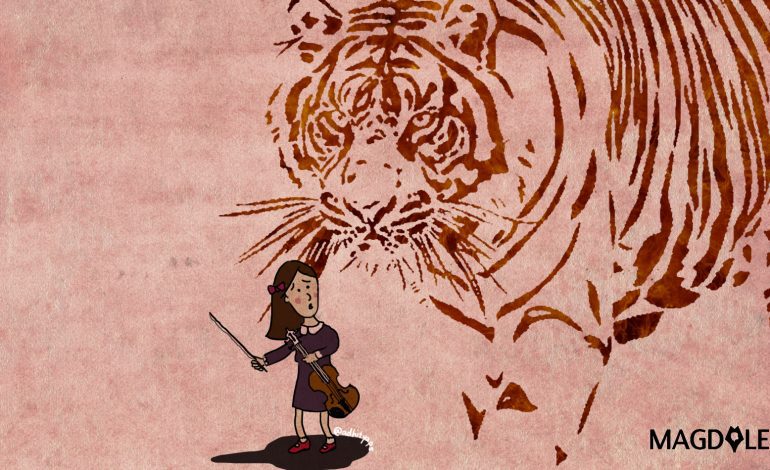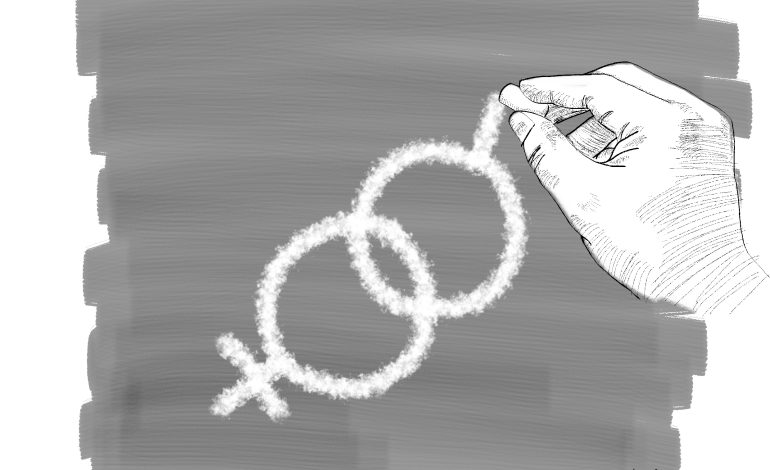The Problems with Tiger Parenting

Humans seek love and affection – it’s in our nature. In Maslow’s hierarchy of needs, love is an essential element to achieve a fulfilling life. Love is there to complete us, transforming us into a better human being, the romantics say. Love gives our lives meaning in this meaningless world, philosophers say.
The question is: what comes first, sacrifice or love? Both answers to that question imply two things: conditional love, which is a byproduct of great labor, and unconditional love, which is the most ideal love and one we crave the most.
We live under the “survival of the fittest” rule and sometimes we treat life as a zero-sum game – another person’s loss is our own gain. Life, indeed, could be that cold and harsh. That’s why we resort to love. Receiving love would ease our pains, opening our path towards a happier and more fulfilling life. But, most importantly, receiving love can redefine who we are after failing over and over again and after being treated badly by the cruel world. Love makes us feel worthy again. Being loved often defines our self-worth.
That’s why we fancy the idea of home. Home is essentially those embracing arms that accept us for who we are, despite our flaws and mistakes, giving us unconditional love. We want to be loved without having to have certain attributes and ideal traits – intelligence, physical attractiveness, kindness.
How painful is it, however, to find that your home isn’t a place of embracing arms, but a stick that breaks your bones?
That’s how problematic tiger parenting is. Not only that it can be physically and psychologically abusive, it also misguides your own concept of love and distorts the core of your identity.
When you’re a child, you want to receive as much love as possible. When you’re raised by tiger parents, you are used to having to meet their high expectations. You pursue perfection and you know your mistakes are not tolerated, so you do whatever it takes to satisfy your parents, because in your head achievement equals their appreciation and their appreciation equals the affection you long for. Your ability to achieve becomes the currency of love. The affection you think you deserve relies on how satisfying your performance.
As a child of a tiger mom, I sought affirmation and acceptance through achievements. I deserved the love of my mom, whom I the love most, only if I’m a good and obedient child. For years I never knew the existence of unconditional love.
“Mom will only love me if I get first rank. Otherwise she’ll despise me,” was the thought that kept me in check for years.
Most people raised by tiger parents are insecure and anxious. They compete to make their existence worthy of their parents’ love. They would always seek to modify themselves in order to be loved because they are not, and probably will never be, convinced that they are loveable just the way they are.
In their critical stage of formation years, they learn that love never comes free – it has to be paid. Unconditional love is a foreign concept to them. Later, when it comes to other type of love – whether romantic or platonic – they’ll always be insecure about what should be given in exchange, since love given by their parents is the very first love they experienced and were familiar with. Love in childhood will be a mirror they reflect on consciously or unconsciously, because, after all, love is about familiarity.
Tiger parenting may result in competitive performance at school and in good career. But this worldly success is not always sweet and rewarding. It’s a consolation prize for the unhappy soul who are good at redirecting their early humiliation and their belief that they weren’t good enough towards “achievements.” And this will never make up for the unconditional love they will always crave in vain.
I’m not saying all tiger parents love conditionally – that is cruel accusation. But here lies the greatest irony: regardless whether or not they love conditionally, their children’s reality has been distorted, as they perceive that love only comes with great costs and labor.
Children are not parents’ investment, and tiger parenting is not the only method to achieve success. Children are human beings. And human’s intrinsic value is not as a means of to achieve another person’s ends. They are their own ends. Children shouldn’t be imposed to benefit their parents.
Instead, as the one giving them birth by choice, parents are responsible for giving them the ideal love and for helping them achieve maximum growth and self-development. Also, success and non-tiger parenting are not mutually exclusive, one can be achiever and successful as well without having been raised by tiger parents.
So if you’re currently raising a child or intending to have one – and I’m speaking on behalf of a child of tiger parents – if you genuinely love your children, I beg you, please, don’t make them fall into thinking that love is contingent on their achievement and into constantly equate their achievement with how much love they deserve. When the world knocks them down or throws bitter failures at them, and when their lovers and friends betray them, they long to come back to embracing arms that will always accept and love them.
Don’t let their reality be distorted by false idea that you only love them at their best. Be the embracing arms. Be your children’s home. Be the love that doesn’t come from a hazardous and painful struggle.
Ellyaty Priyanka is currently a sophomore majoring in International Relations, Universitas Gadjah Mada, Jogjakarta. She’s an old soul who loves to contemplate; who romanticizes things; and who has incredible fondness for the concept of nothing, Schrodinger’s cat and paradoxes. You also can find her occasionally writing stuff in her personal blog: ellyatypriyanka.wordpress.com and wandering on Twitterland as @amoreliaa






















